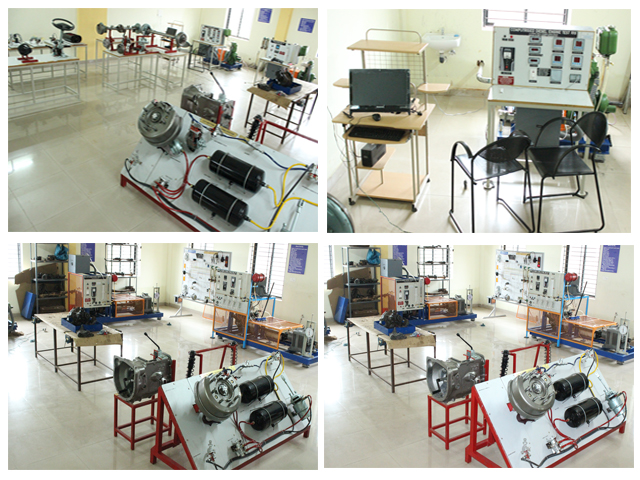The perception of having automobile engineering as a separate engineering branch speaks out of the development in the field of the automobiles in the last six to seven decades. Automobile engineering not just deals with the performance of the existing automobiles, but promises the development of the automobile engineering on the larger scale. Apart from increasing the performance of the engine, the field deals with the other factors such as NVH analysis (Noise, Vibration Harshness analysis), ridability, Durability tests, crash analysis, not to forget the most important part – ergonomics, styling and many other such issues. Parallel to the above researches are also done in finding a suitable replacement for the fossil fuels.
The role of an automobile engineer has its versatility. From designing automobiles for baby boomers to manufacturing economical vehicles, from increasing the competence of an engine to understanding the NVH aspects of a vehicle, all play a vital role for which an automobile engineer desires for. Various automotive companies need engineers with core competencies in particular fields of interest. Modeling the vehicles for its ergonomics, understanding the aspects of fluid flow over the vehicle considering modern aspects such as CFD, and many more aspects form the root of an automotive engineer.
4 Years

-
1Tuning of engines, computerized engine analyzer
-
2Exhaust Emission test of Petrol and Diesel engines
-
3Computerized IC engine test rig
-
4Battery ignition system -working model
-
5Cut section of braking system, electrical system (car) including lighting,
-
6Lubrication system, Steering system, Suspension system
-
7Complete 2 wheeler and 4 wheeler engine for – Dismantling and Assembly
-
1Automobile Engineering Lab 1&2
-
2Fuel testing and Fluid Mechanics Lab
-
3Engine testing Lab
-
4Service and Reconditioning lab
Automobile Engineering is one of the rapid growing stream of Engineering with plenty of scope for design, re-design, modeling, analysis in addition to R&D. The objective of this undergraduate program is to prepare technically competent world class Automobile engineers for the industry and academia. Some of the important subjects taught during the course are Auto chassis and suspension, Automobile Transmission,Advanced IC Engines,Auto Electrical & Electronic system, Gas Dynamics,Automotive fuels & combustion, Auxiliary systems of Automotive Engines, Automotive Transmission, Vehicle Transport Management,Automobile Engineering Drawing in addition to Mechanical Engineering subjects likeDesign of machine elements, Dynamics of machines, heat and mass transfer, Control Engineering, Mechatronics & MicroprocessorFluid Mechanics & Hydraulics Machinery, Metallurgy & Material Science, Thermodynamics, Manufacturing Process, Thermal Engineering,CAD, Machine Drawing etc.
Students will undergo practical sessions in various labs such as automobile engineering lab, fuel testing and fluid mechanics lab, service and reconditioning lab, engine testing lab during the program and will get chance to undergo short term training in related industries. Industrial visits and trainings are part of the engineering course, during which students visit / undergo training in companies and get insight on the internal working environment of the industry. This gives the students much needed exposure to automobile industries and also to get useful information related to the practical aspects of the course which cannot be achieved through class room learning. Invited lectures and seminars by professionals from the industry and R&D organizations will expose students to latest developments in the chosen field.







